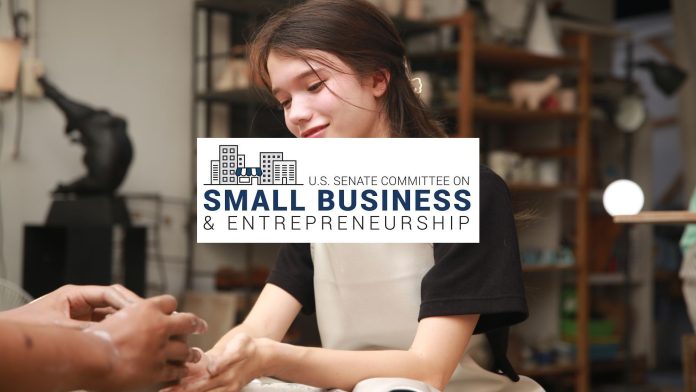During National Small Business Week, Massachusetts Senator Edward J. Markey convened a crucial field hearing in Boston, gathering clean energy leaders to address the importance of small businesses in the evolving clean energy economy. This meeting follows the release of Markey’s new report, “Pulling the Plug: How Trump’s Attacks on Clean Energy Could Turn out the Lights for Small Business,” which warns that federal rollbacks on clean energy investments threaten to dismantle the sector where many small businesses thrive.
Markey underscored the significance of clean energy as one of the fastest-growing industries in the U.S., stating, “In our state, the clean energy economy supports more than 100,000 direct jobs. Our clean energy transition isn’t just about mitigating the devastating impacts of the climate crisis—it is about building an economy with accessible, good-paying jobs.” His message resonates with small business owners who rely on clean energy initiatives for growth and sustainability.
Key findings from the report highlight that small businesses are crucial players in the clean energy landscape. Notably, about 75% of energy efficiency workers operate within companies that employ 20 or fewer employees. Massachusetts boasts over 100,000 direct clean energy jobs, with more than half of the approximately 7,300 clean energy businesses in the state being small firms with ten or fewer employees.
The Trump’s administration’s actions—freezing funding from the Environmental Protection Agency (EPA) and the U.S. Department of Agriculture (USDA), and reinstating caps on Small Business Administration (SBA) loans—pose significant risks to small business viability in the clean energy sector. The recent 2025 Trump Tariffs further exacerbate this situation by limiting the deployment of clean energy technologies, particularly solar, resulting in increased costs for small- and mid-sized installers. This means small businesses must navigate an increasingly challenging landscape, with the potential for reduced competitiveness and profitability.
“We are already witnessing significant solar project delays and cancellations as a result of the uncertainty brought on by talk of tariffs and the possible repeal of tax credits,” noted Nick d’Arbeloff, President of the Solar Energy Business Association of New England (SEBANE). If the Investment Tax Credit is eliminated and tariffs are fully implemented, many small businesses may face drastic workforce reductions or even closure.
The report also sheds light on the impact of federal investments on clean energy projects. Thousands of rural businesses that embarked on clean energy initiatives anticipated funding through the Rural Energy for America Program (REAP), which has now been withheld. The repercussions of these funding cuts could result in thousands of job losses and an estimated GDP loss of $160 billion nationally if federal clean energy tax credits are repealed.
Clean energy leaders at the hearing emphasized the necessity of supporting small businesses. Dr. Emily Reichert, CEO of the Massachusetts Clean Energy Center, remarked, “With over 115,000 workers driving the growth of our clean energy sector, Massachusetts is proving that clean energy and economic growth go hand-in-hand.” She highlighted how investing in small businesses not only promotes climate innovation but also provides meaningful employment opportunities.
Dr. Aisha Francis, President of the Benjamin Franklin Cummings Institute of Technology, stressed the importance of alignment between workforce education and market needs, noting that recent federal funding has significantly bolstered their clean energy programs.
Small businesses, often viewed as the backbone of the U.S. economy, are integral to advancing clean energy solutions. Josh Aviv, Founder and CEO of SparkCharge, emphasized the essential nature of consistent policy support, saying, “Without it, we risk stalling the remarkable progress we’ve made in building America’s clean energy future.”
As small business owners navigate these turbulent waters, they must remain vigilant about the implications of proposed changes in federal policy. With ongoing discussions around the Small Business Liberation Act aimed at exempting small businesses from the Trump Tariffs, there is hope for regulatory relief in sight.
This landscape is not only a call to action for policymakers but a critical reminder for small business owners to be proactive about advocacy and aware of legislative changes that directly impact their operations. For more information, the full report titled “Pulling the Plug: How Trump’s Attacks on Clean Energy Could Turn out the Lights for Small Business” can be accessed here.
Efforts to counteract the potential fallout from federal rollbacks and tariff policies will require united action from the business community and consistent engagement with government representatives to ensure a sustainable future for small businesses in the clean energy sector.
Image Via Envato: FoToArtist_1



